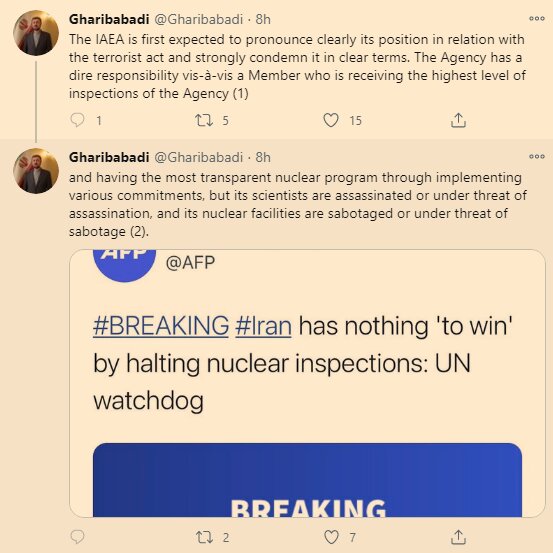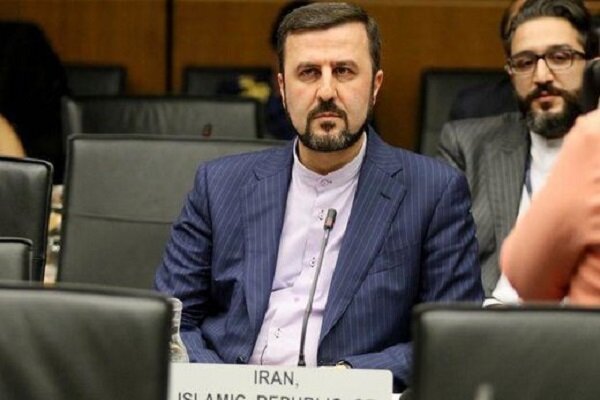“The IAEA is first expected to pronounce clearly its position in relation with the terrorist act and strongly condemn it in clear terms,” Iran’s envoy to Vienna-based international organizations, Kazem Gharibabadi, tweeted on Monday.
“The Agency has a dire responsibility vis-à-vis a member who is receiving the highest level of inspections of the Agency and having the most transparent nuclear program through implementing various commitments, but its scientists are assassinated or under threat of assassination, and its nuclear facilities are sabotaged or under threat of sabotage,” He added.

Gharibabadi made the remarks in reaction to comments by IAEA Director General Rafael Grossi who has not only refused to condemn the Friday assassination of Mohsen Fakhrizadeh, but has also warned Iran against halting the international inspections of its nuclear sites in reaction to the assassination.
Speaking on Sunday, Grossi said it is "essential to give the world the necessary and credible assurances that there is no deviation from the nuclear program to military uses.”
Grossi's comments were also made in reaction to the Iranian Parliament's call for restricting the United Nations' regulatory mandate regarding Iran’s nuclear program.
“Such atrocity entails an immediate and regret-inducing response,” the Iranian lawmakers said on Sunday, stressing that the best means of retaliation is through “the revival of the country’s brilliant nuclear industry by ending its voluntary adherence to the Additional Protocol” and restricting the UN nuclear watchdog's unprecedented inspection regime.
Iran undertook to adhere to the Additional Protocol of the Nuclear Non-Proliferation Treaty (NPT) as part of its 2015 nuclear agreement with world countries. Under the protocol, the International Atomic Energy Agency (IAEA), the UN nuclear watchdog, is allowed to carry out “more intrusive” inspections of the country’s nuclear work.
Two of the most recent acts of sabotage -- where the Islamic Republic strongly suspects Israel to have acted with US intelligence – include a July incident at the central Natanz nuclear site that caused material damage to the facility and the Friday assassination of a nuclear expert Mohsen Fakhrizadeh.
Fakhrizadeh was targeted in a multi-pronged terrorist attack by a number of assailants in Absard city of Tehran Province’s Damavand County.
MNA
























Your Comment